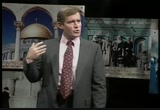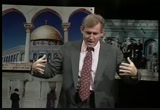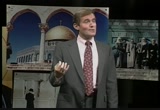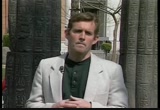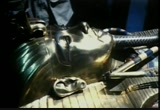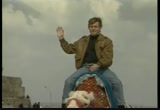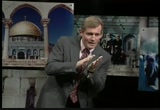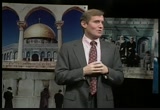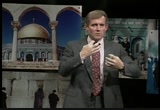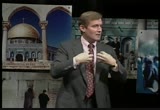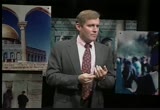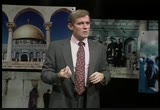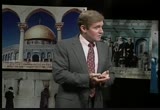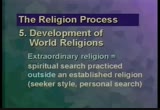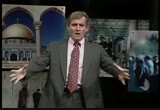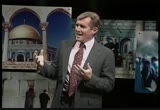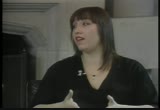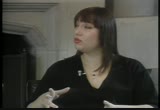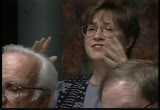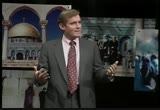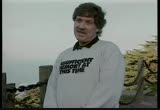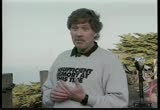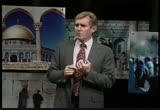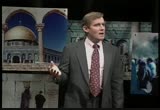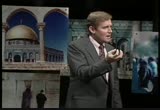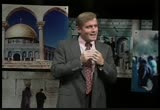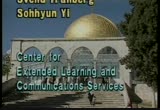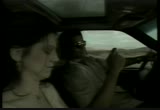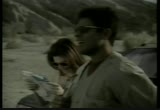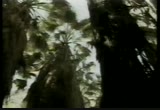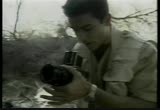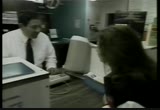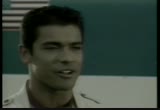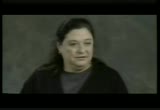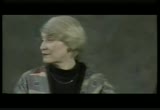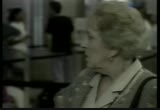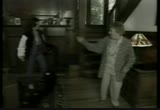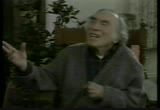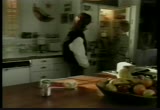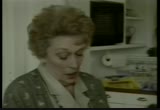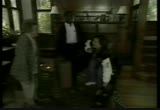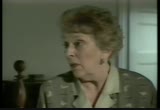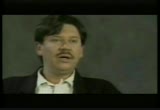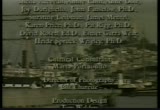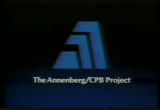tv Democracy Now LINKTV September 4, 2012 9:30am-10:30am PDT
9:30 am
you do aerobics or whatever you need to do to exercise your physical body, you don't exercise your mind, you lose those abilities. but we seem to be lost somewhere in society on exactly how to exercise this other element, and we want to come back and talk about that, particularly experientially, but maybe even in the next class, because how do you, then, make meaning out of these things? i mean, it's a very difficult point. let me just hold for just one second so we get to the graphics, and then i want to come back because i want to do the roll-in because we've talked a bit about death here, and death is - after suffering and change, on our rites of passage, we come to death as a profoundly moving rite of passage that shakes you up, that shakes you from your standard limited sense of self. it demands that you see a bigger picture or you're literally crushed from within by grief and pain. i mean, i really -
9:31 am
i think that having experienced death in many different forms from parents to friends to what have you, as we all do as we get older, i think the only way that i have overcome my grief is to transcend my limited sense of self, and on the other side of me, find an interconnection with the one who has gone on - that you have to come out of a simple ego-oriented bodily sense of self, and connect at some much more fundamental level, in order to get out of the grief part of it. but that's yet another story, and a difficult one. but on the note of death, let me bring in the role in here on egypt. we went to egypt, as you may know, and it was a very conflicted experience. i mean, who would not want to see the great pyramids of egypt? but in many ways, the problem with the situation
9:32 am
in egypt, as we got to the pyramids and there was such a difficulty between the impoverishment of the modern time, but the grandeur of the dead time. and i began to see, as we went through the egyptian museum, and as we went to the pyramids, that on the basis of a single profound rite of passage - death - a most magnificent culture had emerged-ancient, archaic, egyptian culture. because what, in essence, was sparking that? it was maybe fear of death, but the desire for immortality, the desire for overcoming it. so with no further adieu, let's pick me up standing in front of the egyptian museum, and the piece on egypt. >> "don't go gently into that dark night - rage, rage, against the dying of the light." the brutality of brevity of human life has titillated the religious imagination of people down through history. i'm standing in front of the egypt museum here. we see that certainly t earliest times
9:33 am
in that archc religion, finding so meaning, some sense of purpose out of life that was cold and brutal created such an extraordinarily beautiful set of statues and mythic drama. a couple of questions we can follow up here in terms of main class themes. one would be the pervasiveness of religion. in the face of insecurity and death, we think once again about identity - who are these people - and relationship. how do we deal with the world around us that seems bent on our creating our own demise? our sojourn through the wide, coolalls of the egyptian museum in cairo dramatically reinforces our three interrelated introductory class themes. rites of passage - in this case death - generate boundary questions - "where do i go when i die?" which is a pervasive human preoccupation from our most ancient civilizations up to the present. if nothing else, our mortality is the commonality that binds humanity together,
9:34 am
and forces us to formulate religious answers to the sometimes overwhelming demands of our shared existence. faced with death, as are we all, the ancient egyptian pharaohs responded with unparalleled creative energy in their quest for immortality - from the magnificent statuary, elaborate burial masks, to the golden sarcophagus from tutankhamen's tomb, the visitor is struck by the egyptian response to death. of course, for most people, the pyramids of giza are ancient egypt. through the burial tombs for three pharaohs - a father, son, grandson trio who reigned during the 26th century before the common era - an egyptian pyramid provides an excellent example of the axis mundi - the center of the cosmos. the pyramid signifies that connection between the visible and invisible worlds. crouching below the three pyramids, with its inscrutable cheshire cat smile is the sphinx. the sphinx served as
9:35 am
a funereal complex for the elaborate preparation of the dead for the entombment in the pyramids. indeed, the fragility of life ignites questions about meaning, purpose, and in the case of the ancient egyptians, created a civilization characterized by extraordinary grandeur and religious imagination. but have things changed today? no. death can come at any moment and to any person - even a religious studies professor who is foolish enough to climb on the back of a camel. >> and boy, was that foolish, too. i'll tell you. the most overwhelming thing that happened is this camel driver took my camera and said, "i'll take a picture of you on the camel here." "give me your camera. give me your camera." i said, "well, i'm a dumb tourist; i'll do it." so he starts hauling me back, way, way, way, down the pyramids, away from everybody else, and i'm going, "oh, my goodness." and then he gets the camera, and first off, he doesn't know how to use it, so i never did get the picture. and then i said, "okay, let's go back."
9:36 am
he says, "you want your camera back? $20. $20 american." i said, "no! no!" he said, "$20 american. $20." so i gave him $20; i wanted my camera. then he wanted more. but i mean, that's beside the point. the intensity of being there - we got to go inside the pyramids. anybody been to the pyramids here, actually been there? for me, it was an extraordinary opportunity; we actually went inside. if you're claustrophobic, this is not a good thing to do, through long, long passages, and you get up into the inner realms here of the pyramid, and you just have this sense of, "wow, what spawned this civilization? and i don't think i'm too far from the mark - i am no egyptologist, but i don't think i'm too far from the mark to say that the impulse - and it's very religious in their concept - the impulse behind this was a fascination with death and a desire to overcome it in any way, shape or form. i mean, the pharaohs, literally, would be reborn, not bodily,
9:37 am
but in the next realm, with all the things that they had with them. so now where we have a situation where death spawned one of the most magnificent civilizations on earth, and yet one that, like all civilizations, was destined to crumble. i mean, it shows that all human constructs, in the face of our mortal challenges, are never going to rise up and fully answer those questions. i think of kansas's old song from the '70s or '80s, whenever it was, "dust in the wind," "we're all dust in the wind." that's the kind of an idea, because when you stand by the pyramids, and after you've been through the museum, you see the wealth, the intensity, the grandeur, but there's just dust, coming off the pyramids, just blowing by you. and that's what, for me, was - that's what brought the awe out, and from that, the inspiration came to do the little piece on it in this section of the course.
9:38 am
let me just finish up our process here, and then i've got to go back to your good question, barbara about do we need religion - does it have to be religion - i want to move into that direction. we have a couple of very interesting, a little bit lighter interviews along those lines. but here's, just to run down the steps again, we have self-consciousness, we identify with the other, we compete with the boundary questions - not compete so much but work with and have to make sense of them; rites of passage generate those questions, as we've seen - and now can we then as step four talk about a spiritual dimension? and if so, it's another characteristic of what binds us together as human beings - what do we all share? we're touching on that in the class anyway. but we have certain emotional needs, and these generate boundary questions, these bring up key ideas. in addition to emotional needs, we have certain psychological needs, and these also call for resolution.
9:39 am
we're moving towards religion - there are kinds of ways that people relate to boundary questions. we have certain kinds of intellectual needs - these are the kinds of things that we go through. we try to make sense of life, we have a mind, the mind asks boundary questions, those questions need to be answered. so we need-as identity is the emotion part, we need feedback - we need emotional feedback, we need psychological feedback, we need intellectual feedback, and we need physical feedback. these are all things that we know that need to be balanced, that need to be in harmony, to some extent, for us to lead a harmonious life, to take it right back around in the circle, to have a full sense of self, in other words, a fully harmoniously developed identity, and then to have the capability to enter into any relationship effectively, authentically, and with compassion - a word that has come up many times in this class. we need to have these needs met.
9:40 am
so what happens? and we get to step five, and here, if we had a panel of religious studies scholars, we'd get lots of lovely arguments and disagreements on it, so i know i'm making a leap of intellect. we can't make a leap of faith in here, but i guess we can make a leap of intellect. but i'm saying, well, maybe that is exactly where these questions come from, as ways in different cultures at different times to meet those kinds of needs. so if we just go down the list of the major world religions, does it not make sense in certain cultures and certain times that we begin to see them develop? and that's what i'm kind of saying. so we see a hinduism develop in india. we see buddhism develop at a little bit later time. and if you do world religions, you realize how interesting that
9:41 am
most of the great traditions, given all of human history - our egyptian folks predate the great world traditions, their religious systems, those archaic systems - but how interesting, in roughly, what, about 1,000, 2,000 years, give or take - who's counting - you see the great world religious traditions develop. and if you look at it from an evolutionary perspective, you might say that human beings reached a point of more complexity in terms of boundary questions, more complexity in terms of the difficulty of identity and relationship, more complexity about meeting those psychological, emotional, and physical needs that they had. and so we begin to see, in different cultures, hinduism develop, judaism, buddhism, christianity, daoism, alternative religions - in other words, when we take our textbook that we're using in here, if you pick up any textbook
9:42 am
on world religions, in one sense, we're being purposely simple; in one sense, what you're seeing, as you move through these great traditions we've listed here, you're seeing a set of answers to profound life questions that meet psychological, emotional, spiritual, and even physical needs, as you come smack up against rites of passage. and it's not the - i mean, you can get much more complex than that, and i'm working off you here, but as i've thought though it over the years and bounced off this, it seems that that's what you're getting. now, just to move to the next set of graphics and one after that, i'm using the term drawn from religious studies - if i had to do it otherwise, i might have changed it, because it has funny connotations - but i would say that our great world traditions are ordinary religion or ordinary spirituality. not ordinary as commonplace
9:43 am
or not very special, because they're extraordinarily special, but the ordinary - in other words, the way we tend to think about religion is kinds of major traditions that we can stick a label on. in other words, i'm a jew, i'm a christian, i'm this, that, and the other thing. but is there not an extraordinary religion, an extraordinary way of being spiritual in which we may not say i will be this religion - i won't - i can't take that label, i don't agree with that doctrine, or for whatever reason, and yet we have to find some kind of system to do it in. so we have to look around for new religious movements. now that's going to take us into our different styles of religion, and i have a fascinating interview here we'll bring up. first, but chris, let me just get your question here before the roll-in. >> you were talking about ordinary religion, and i was thinking about the shared experiences and how we've talked about the symbolism and how the symbolism is something that everybody knows -
9:44 am
the fish in christianity, trees, anything people can definitely focus on and say, "i know what that is; you know what that is. we can share this." and that's what makes it ordinary. >> and i think that's where - it's good of you to bring up something from the previous class, because that was the point. now we're seeing, okay, we have this religion process or religious process in hand. what spawns it? well, first off, people are going to have to agree on a set of answers to profound life questions, and usually this comes out of the focus of a charismatic leader. then they're going to have to come together, and out of that, we begin to see full-blown, world religious traditions develop that we can study and approach. but i guarantee you, within those, there is always some seeking, there's always some movement. i don't care how fundamentalist you might be, there's always a little element in here. let me quickly jump to a very short roll-in to try to illustrate this point. we have a witch -
9:45 am
we have a witch to see next, a self-described witch who grew up in a more traditional religious path, not that witchcraft isn't very traditional, if you look at it from a different perspective - kate cogan. she was also a theology student, and we went up to - the theological seminary up in chicago, and had an interview with her. and part of the interview, we said, "well, kate, why a witch? why did you do this?" and so, from the perspective of the class, let's think of kate as a human being not particularly satisfied with the set of answers in a more standard, ordinary religion, who has kind of a funny event that occurs that wakes her up and says there's a new vista. she's a seeker, and we want to talk about seekers as a leap-off into the experiential dimension, because those are the folks who we can really be sure they're experiencing. it's not that
9:46 am
other people aren't, but those who are seeking are more likely to be asking boundary questions. so let's just listen to kate cogan here give a sense of why she became a witch. >> i was looking for a way to take that kind of spirituality but literally ground more. and one day i was in a library and a book literally fell on my head, and in this book was - it was sort of a survey of all of these different religions that were coming to prominence in the united states, and they had a chapter on wicca. i wish i could remember the name of the book. and the picture on it was a woman in silhouette against the sun and she was naked, and she was sitting on the earth and her hands were touching the earth and her head was back, and just sitting there in the sun, basking in all that energy, and i looked at this and said, "that looks wonderful!" and i read this chapter, and the more i was reading, the more i was saying,
9:47 am
"yeah, that's what i believe. i think that, i always felt that." and i happened to be dating a young man at that time whose sister moved into an apartment next to a store in new york called the magical child store that basically sells books having to do with magic, witchcraft - walked in and found a guide called, the circan guide to paganism and pagan resources, and in the back was like a telephone directory of all these groups in illinois, and i wrote to one and became initiated into my first coven. and it was just like coming home. >> see, we'll see this over and over again as we move through this semester, and it's about the religious impulses - why i wanted to bring kate cogan in here at this point in time, because you see, she was not satisfied, she seeks, there's a possibility - but from our perspective - now i know kate cogan's not thinking this -
9:48 am
but from our perspective, we're thinking, okay, she is asking profound life questions; she has psychological and emotional and spiritual needs that aren't being met where she's at. and this event happens - synchronicity again - a book falls on her head; she opens it up, and there's a whole new avenue for her, a whole new place. now do you get how her identity something happens that allows her to transform her identity, which then sets into motion a whole different set of relationships that meet the newfound need. so it's a growing experience, it's an experience that grows. now, obviously, people from deeply grounded, traditional religions aren't going to accept that at all. janet? sure, go ahead. >> people are very resourceful. i was very pleased to meet professor tapio korento, and he's from finland.
9:49 am
he wanted to find out what would be the effect if you actually denied people their religion. so he studied high school students in estonia, and when estonia was communist, under marxism, they were not allowed to have any religion. and he compared those high schoolers to finland, where the people were allowed to have religion. what he found was that the estonians, where religion was outlawed, those high school students believed in paranormal, pseudoscience - all of these kinds of stuff that people who are using their intellect in a critical sense are saying, "it doesn't seem quite right." but these people, denied their religion, grasped onto just any idea that was around - astrology, whatever, anything, spoon vendors, anything - they just clung to anything they could get their minds on, because they were denied their regular traditional religions, it was outlawed. >> and that's the tension that we're going to face, when we finish up these last graphics, because is it too easy
9:50 am
to sit in the easy chair of one set of standard answers to life's profound questions, and not experience, not do it, until unfortunately, maybe it's a rite of passage or something tragic happens. and the worst thing is when a person wants to rely on their religion for solace and sustenance and they go and they open the book and it's empty, because they've brought nothing to the party - it hasn't made sense to them. and that's a very sad thing, but it's also a very real thing. let me just do our one last roll-in so we'll have plenty of time to wrap it up. on the same line, paul munshank is my colleague at wiu, and has built a career around personal transformation, the religious quest, and somehow gotten away with it at a state university. he teaches religious studies, as i do, and we may still have him up in the semester, but he has a wonderful perspective on how spirituality
9:51 am
i think this goes back to janet's question - how spirituality is at the heart of religious experience, and then religion may or may not grow out of it, may or may not be fruitful. so let me have paul say a few words, and then we'll come back with our last graphics and wind it up with some good comments here. paul, hit it. >> well, that's a good question. it depends, i guess, if you take it seriously or not. obviously, we are scholars of religion and we study religion intellectually, and therefore, the kinds of understanding that we have are intellectual understandings, whether it's literal - very few of us take things too literally - or metaphorical. now, there comes a point, however, if you take our discipline seriously, that you begin to wonder, and is metaphorical,
9:52 am
intellectual understanding really enough. so we may come to some very deep, profound understandings of religion metaphorically, but then the question comes, "well, so what?" and there comes a point when you think, "well, you know, i wonder." in fact, right now, right now, right here, in this place, it seems to me that if we really take our discipline seriously, it might be better for us to sit down and look out here at the ocean and the mountains and maybe gaze upon the golden gate bridge for a while, and shut up and just look and feel the connection. >> and he shut up at that point, and he hasn't talked since. no, he talks a lot. but a wonderful fellow, but there is another key point. in not this class, but a little bit further down the pike, we're going to be talking about meditation and mysticism,
9:53 am
and we're going to be going to a desert monastery in the sahara, where of course people are silent all the time, and what does that mean? what is it about religious experience that says, "shut up." eventually, you have to be quiet and listen to something within, something experientially that makes it authentic. now we can talk about prayer, we can talk about meditation, or we can talk about just going for a long, quiet walk in the woods or perhaps a long hike in camping by ourselves or a trip down to the ocean sitting by the sea, and when we talk about different kinds of mystical experience, we'll touch on those. but there's something about human beings as part of this need is the only way to quiet the chatter of the mind is to go through some kind of religious practice or another
9:54 am
and meet this kind of silence. so in our last set of graphics here, as we're winding up what's been a great class, i want to talk about the different styles, and paul munshank, actually, i believe, came up with this very clear way of thinking about religion, and it gives us a good jumping off point into the experiential dimension. let's first talk about belief style. now, belief style is what i believe most people think when they talk about religion. when people say what is their religion, "what's your religion?" what they really want to know is what's the label of what you believe. and if we simply think about religion as belief, well, that's extremely important. if you're a devout roman catholic, you have to know what you believe. if you're a hare krishna devotee, you have to know what you believe. so being in belief is very important, and it's a style that people have. does it go too far sometimes?
9:55 am
well, i think so. but it's necessary, and it's a way people go about believing. it brings them into certain religious organizations, it brings them there, sitting down on the pews, because that's what they want to believe. another style that people have, though, that's very important, is the communal style, and it goes back to chris's observation earlier in this course - people want to belong. and you'd be amazed at how many people, particularly those who were born into a religion, you ask them the most basic question about their faith and, wewell, "what? i believe that? what do you mean? i didn't know that!" it's because they are there for the communal sense, for standing on the front steps after the service and looking who got a new buick or getting the bean suppers together or just singing the hymns and hanging out - a very important part of what religion does, it brings people together. but the style we want to focus on with our kate cogan here and a little bit of what paul munshank's saying about
9:56 am
if you really want to know your spirituality, you have to be silent about it is the seeker style. not to say that the seeker style is any better than the other styles. it's just, if you could see how if someone's seeking, they're more likely to be asking those profound life questions, they're more vulnerable, and so we can get a little bit closer to them when we want to ask about the religious experience - when we want to say, "are you really experiencing?" well, the belief person - and i've had students in my class say three or four weeks into the course, they say, "professor simmons"- and i almost turned around to see who that was, but i guess it was me - "professor simmons, i don't get this. what are you talking about? i don't seek; i just have my religion. i'm this, that, and another thing." but they're so grounded in the beliefs they grew up in that they don't have a sense of seeking or looking or experiential dimension; it just is, and that's okay. the communal style
9:57 am
is very real to people, and has to be respected in that sense. but we get to the seeker, and that's a fascinating one. now, i'll tell you about this. like all things in the world of religion, and probably humanities and probably life, it's not mutually exclusive. i think if you really want to talk about a religious person, you can find a believer who loves the community, but there's always that little element of seeking, and that's where you can get into it. i remember meeting this, oh, wonderful baptist woman in mccomb, and you would have thought this woman was the bedrock of the baptist tradition. and i found out - she was in my "women in religion" teleclass - secretly, she was mailing off to some amazing cult group out in new mexico that was sending her pamphlets every single week, i mean, astrology and what have you. so that's what we want to look at when we move into religious experience
9:58 am
10:00 am
10:01 am
♪ everybody needs a dream catcher ♪ ♪ catch me! rebecca: "day 5: alberto helped me out again." "my car broke down. i'll have to take a bus to san francisco." seriously, though, i mean, we... let me take you back to san francisco. it's going to be faster and cheaper. i appreciate the offer but i think i'll take the bus. alberto: yeah, i suppose you have to be careful. you just can't drive with anyone. rebecca: but i still don't even know your last name. mendoza. actually, it's alberto manuel mendoza.
10:02 am
that's a pretty good spanish accent. my family is from mexico. where in mexico? a little village west of monterrey. so, what's your full name? rebecca mary theresa casey. my grandparents are from ireland. dublin? no, from the west. it's a little town in galway. i'm told it's a beautiful place but it's a very poor town. my family's village was poor, too. you know-- no money, no jobs, just politics. i guess that's why both our families moved to the united states. oh, yeah, that's right-- to have a better life, to get an education and to make a living. yeah, well, my family never did. well, hey, you'll be the first. what do you mean? come on, you'll write some wonderful pop song and become a huge hit. yeah. i like the way you think. ( laughs ) me, too.
10:03 am
wow. these canyons are spectacular. yeah, it... it says here that these canyons were sacred to the agua caliente indians. it's pronounced "agua caliente." agua caliente. and i've got to take some photos. do you mind carrying my bag? no, not at all. here you go. okay, got it. it's hard to imagine what these canyons were like so many years ago.
10:04 am
probably much the same as they are today. look at that over there. this is really amazing. they must call this a desert oasis. yeah, i bet you these palm trees are over a hundred years old. this is it. could you do me a favor? um-hmm. i... i nd someone in this picture. can you stand over there by the palm tree? alberto, there are more interesting things
10:05 am
to photograph in here than me. no, really, i'm serious. i... i need you in the picture to give the picture a sense of scale. but i... i don't know. please? well, since you've gone out of your way, i guess it's the least i can do. alright, yeah, stand over... that palm tree to your right. right there, perfect. alberto: yes, and turn... yeah, turn around a little bit. there, there you go. yes, yes, yes. what time is it? you look great on camera, thank you. oh, we have to go. hold it right there. my bus leaves in less than an hour. hold it, hold it. alberto, please. there's only one bus a day. i have to make it on time. ( sighs impatiently ) thanks. ( police siren wailing )
10:06 am
oh, man, a cop. hi. do you know how fast you were going? mmm-- maybe 65? 80 miles an hour. license and registration, please. registration. registration, license. officer, let me explain-- we were just trying... i'll be right back. i hope he doesn't give you a ticket. you can say that again. o.k., since you don't have any points on your license this time, i'll give you a warning. thank you, officer. thanks. whew! how lucky is that? he didn't give you a ticket. yes, whew.
10:07 am
oh, hold on. i'll take the luggage, you get the ticket. thank you. you're welcome. may i help you? yeah, i need a ticket to san francisco. round trip? i need a one-way ticket to san francisco. so, what's taking you to san fran? oh, college and a job. um, people seem to think you can't tie your shoelaces without a college degree these days. uh, let's see... um, $65. $65? is that a one-way or a round trip? one-way. that's what you asked for. yeah. is all this baggage yours? no, it's my friend's. oh, i can take the guitar on the bus. thanks for all of your help. my pleasure. actually, your driver here did all the work. where are you going? san francisco. oh, you know, you have to change in l.a.? um-hmm, i really appreciate your help. well, is that it? is that everything out of your car? yeah. your ticket, please.
10:08 am
we're leaving in 2 minutes. guess this is it. thanks for all your help. it was wonderful meeting you... i mean, all except for the part when the hood of your car fell on my head. does your head still hurt? no. not really. i'll never forget that look on your face when i found you in the desert. i'll never forget when you were sleeping in your car. and tom the trucker, with that engine he borrowed from a 747-- yeah. thanks for being such a good sport. you're welcome. all aboard. rebecca, look-- since we'll both be in san francisco, um, why don't we get together? well... i... i don't think i'll have much free time and with school and work and...
10:09 am
you can't study all the time, right? you need to take a break once in a while. yeah. i... it'd be my honor to show you the city. where can i reach you? i'm staying with my godmother. does she have a name? nancy shaw. do you mind giving me her address her phone number? oh, yeah, i have it somewhere. alberto, i need to explain something to you. i had a boyfriend in boston. we broke up before i left. for now, i just want to concentrate on my music and worry about my... rebecca... i just want to show you my hometown. thanks. here. yeah. and listen, um, if you have any spare time
10:10 am
10:11 am
i'd like this dream catcher, please. narrator: now let's review and discuss the story. alberto offers to give rebecca a ride to san francisco. let me take you back to san francisco. it's going to be faster and cheaper. alberto is taking pictures of rebecca in the desert. do me a favor? i... i need someone in this picture. can you stand over there by the palm tree? speaker: suddenly they see a blue light. oh, man, a cop. a policeman came and stop them for speeding. hi. do you know how fast you were going? mmm-- maybe 65? speaker: they arrive at the bus station, and there isn't much time left. he gave her his business card.
10:12 am
if you have any spare time, here's my business card. call me. she's not going to call him. speaker: rebecca is finally catching the bus and is on the way to san francisco. he went back to buy the dream catcher. i'd like this dream catcher, please. i think they are going to see other. they exchanged phone numbers and he gave her his business card. it seems almost like a thing of destiny. man: let me tell you something-- san francisco is a big city. they're not going to meet each other. but they will... remember, he waved to her and then he went to buy the dream catcher. you don't buy a gift like that and it was meant for her. i agree with her. maybe he bought it for himself. no. you never know. he does have a nice smile. the guy is a hunk. he has a great smile. he's very dashing. he's very interesting. why wouldn't she want to see him?
10:13 am
10:14 am
welcome to san francisco. it's good to be here. it was a long trip. what exactly happened to your car? oh, my car broke down in the desert and i didn't have the time or the money to fix it, so i sold it. what a shame. that was the car your father bought you, wasn't it? but at least you made it. now let's go home. that sounds good. now, where are your bags? rebecca: uh, they're over there. are all those yours? good grief! i don't know where we'll put them. we'll figure something out. do they have baggage carts here? yes. um... i'll watch your luggage. why don't you go and get a cart. i fit all the luggage on the cart, but i can barely see you! oh, this way. i got the trunk ready. rebecca: wow, this is quite a car. it's old, but it runs... just like me. here we are. be careful, this is heavy. is it? i'll help you. we can do this all right.
10:15 am
rebecca: it's hard to believe i'm really in san francisco. well, you are. see that building? that's the transamerica building. some people like it, but not me. it's too big. nancy: how's your father? rebecca: he's doing pretty well. his leg bothers him every now and then. i'm sorry to hear that. and your little brother? how's he doing? kevin? he's not so little anymore. he's almost 6 feet tall, and he just graduated from high school. is he going to college? at the moment he has a job, but i hope he'll consider it. a college education is so important these days.
10:16 am
it's hard to find a decent job without it. you're telling me. the house isn't very far from here. i hope you'll feel comfortable there. i'm sure i will. what a beautiful house! it's been in the family for generations and we love it, but it costs a fortune to keep up. i've got these bags. you get those. ♪ i've got my memories, but they're far behind ♪ ♪ i'm traveling light. ♪ i'm traveling light ♪ i'm traveling light ♪ i'm traveling light.
10:17 am
put those bags down there. wow... this house is really a jewel. i see why you've kept it. yes... it's very special to me. make yourself at home. it's your home now, too. oh, by the way, there's no smoking, and no drugs in the house. and no guests upstairs. i don't think you have to worry about that. i didn't think so. melaku... sorry to disturb you. i'd like you to meet my goddaughter. yes, of course, miss shaw. rebecca casey-- this is melaku tadesse. rebecca? am i pronouncing your name right? it's a pleasure to meet you. uh... it's nice to meet you. is it melaku? yes. melaku is from ethiopia. he's a graduate student in business administration. when he gets his degree next year, he'll return home to his wife and two children and start a business in addis ababa.
10:18 am
that's correct, addis ababa. oh... rebecca will be studying at the san francisco college of music. melaku: well, very good. perhaps you will play or sing for us. what do you think, miss shaw? as long as it's not that loud rock music. oh, no, don't worry. all i have is an acoustic guitar. we'll leave you to your studies now. i hope you enjoy it here. i do. i'll see you at dinner. thank you. nancy: this is the living room. my uncle's favorite place. let me introduce you. uncle edward-- this is rebecca casey, margaret's daughter. here, let me help you. please, don't trouble yourself. no trouble at all, rebecca. it's a pleasure to meet you. it's very nice to meet you, mr. shaw. please call me edward. i met your mother once, many years ago. you look like her, if memory serves me. that's what people tell me. i'm very happy to be here.
10:19 am
we're very glad to have you here. i, uh... i think i'd better sit down. i'm afraid these visits here are rather tiring. they take the wind out of my sails. can i get you anything? no, i'll be fine. just let me rest a while. are you going to stay for supper? i wouldn't miss it. go on, now, and show her the rest of the house. and i'll see you at supper, rebecca. that'll be very nice. nancy: my uncle edward lived in the house his whole life. but his physical condition deteriorated too much and i had to move him to one of those retirement homes for the elderly. it was a very difficult decision for both of us... but at least he comes home once a week. today's the day. he's a very distinguished gentleman. and he was a very good musician, too. he used to play the piano beautifully
10:20 am
but he can't anymore. he's... just too frail. come see the kitchen. and this is the kitchen. who left this mess? we each buy our own food. and we all share the refrigerator, so please put your name on your food. see, like melaku does. excuse me... does melaku live here? oh, yes. he's one of my renters. he is going to go far, that young man. he's always studying. now, the pots and pans are up here... the glasses are here... the dishes are here... and the utensils are in this drawer. now... you must be thirsty. would you like some iced tea? yes, i'd love some, please.
10:21 am
this is the house phone. local calls are free, but don't stay on too long. of course, we each pay for our own long-distance calls. we keep a list. i... didn't know that you had renters. i didn't write to you about the renters. oh, rebecca, i'm sorry. i am so embarrassed. i guess i'm not quite used to the idea myself. it was just kind of a surprise. yes, of course. ever since my uncle moved to the retirement home, the bills have been coming in so quickly. i had to do something. renting out rooms seemed like a good solution. i'm sure the rent money helps. i just couldn't take care of edward by myself any longer-- to bathe him, dress him. and he fell down once when i was out and he couldn't get up by himself.
10:22 am
it was terrible. i can see it's a big responsibility. the house, your uncle... what choice do i have? would you like to see your room? yeah. oh, please-- let me help you with those. oh, thank you. rebecca, you have enough baggage for an army! i didn't know what i'd need so i brought everything. i'm the same way-- better safe than sorry. melaku... would you put the suitcases in rebecca's room, please? of course, miss shaw. thank you. melaku lives on the third floor; you and angela are on the second. angela? mm-hmm. oh, hi. angela, this is rebecca casey, from boston. she'll be living here, too. hello. oh, terrific!
10:23 am
i understand you've had quite an adventure. yes, i... is it true you drove all the way across the country by yourself? i drove almost all the way. oh, unbelievable! well, i'm afraid i have to rush. it's nice to meet you. i'll see you later. yes. see you later. nancy: she's studying to be a nurse, and working part-time. she's kind of wild. well, here we are-- this is your room. it's a little dusty. oh, it'll be fine. it's very charming. oh, what a nice view. the bed looks comfortable. rebecca, can we talk? this is very difficult for me to say.
10:24 am
you know i wanted to let you stay here rent free... yes, i appreciate... no, please... listen. this is extremely difficult for me. i'm afraid... i'll need to ask you for some rent money to help pay the house expenses. i feel bad about this. i've tried everything... but if i can't pay my bills, i'll have to sell the house. that would be terrible. the cost of the retirement home is unbelievable-- much more than we expected. i understand. i wish i could help you a little more. i mean, you are my goddaughter, for heaven's sake! i understand. i want to pay my share. i want to contribute. how much are you thinking of? can you manage... $250 a month? tell me if you can't afford that much. no, it'll be fine. $250.
10:25 am
are you sure? i'm sure. it's good to have you here. well, why don't you wash up and settle in a bit. dinner's at 6:00. o.k. narrator: now let's review and discuss the story. speaker: rebecca arrived in san francisco. speaker: then nancy shaw is waiting for rebecca. welcome to san francisco. it's good to be here. nancy is rebecca's godmother. nancy? rebecca, is that you? yes, it's me. hi, how are you? nancy shaw is a very opinionated old lady. see that building? that's the transamerica building. some people like it, but not me. it's too big. speaker: they drive through san francisco. nancy shaw drives an old, old car.
10:26 am
speaker: it's a big old american car. her uncle edward is a very distinguished man. edward is in a retirement home because he's not able to really function well on his own. i'm afraid these visits here are rather tiring. they take the wind out of my sails. melaku is from ethiopia. is it melaku? yes. melaku is from ethiopia. melaku is away from his family and being away from your family is not fun. angela is from the philippines. she's a "whoa!" kind of person. hi! angela, this is rebecca casey from boston. she'll be living here, too. hello. oh, terrific! nancy tells rebecca she has to pay rent. i'll need to ask you for some rent money to help pay the house expenses. speaker: that was something that she didn't count on. it was a little unfair of nancy shaw to tell rebecca that late. she was chosen to be the godmother,
10:28 am
241 Views
IN COLLECTIONS
LinkTV Television Archive
Television Archive  Television Archive News Search Service
Television Archive News Search Service 
Uploaded by TV Archive on

 Live Music Archive
Live Music Archive Librivox Free Audio
Librivox Free Audio Metropolitan Museum
Metropolitan Museum Cleveland Museum of Art
Cleveland Museum of Art Internet Arcade
Internet Arcade Console Living Room
Console Living Room Books to Borrow
Books to Borrow Open Library
Open Library TV News
TV News Understanding 9/11
Understanding 9/11